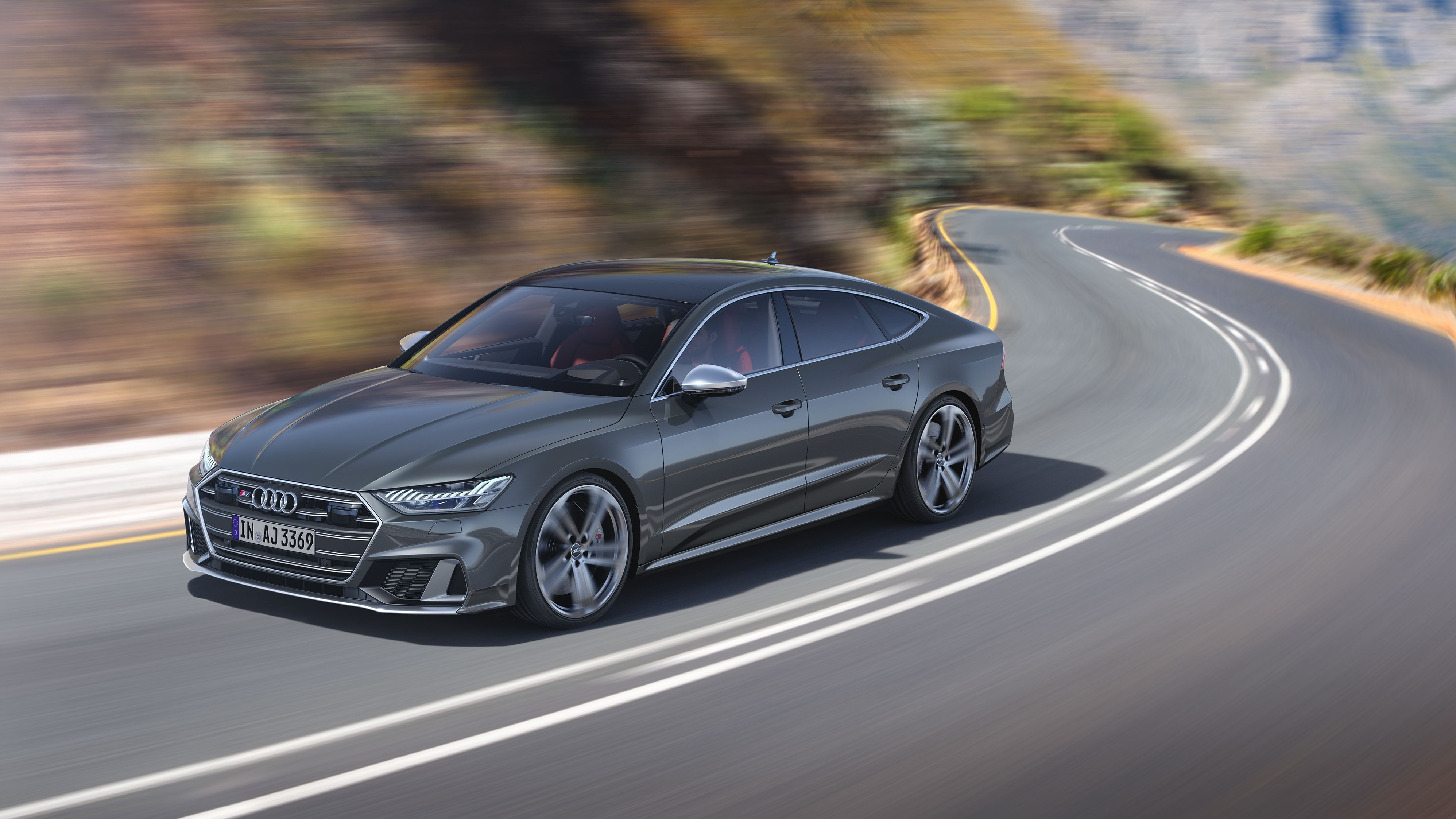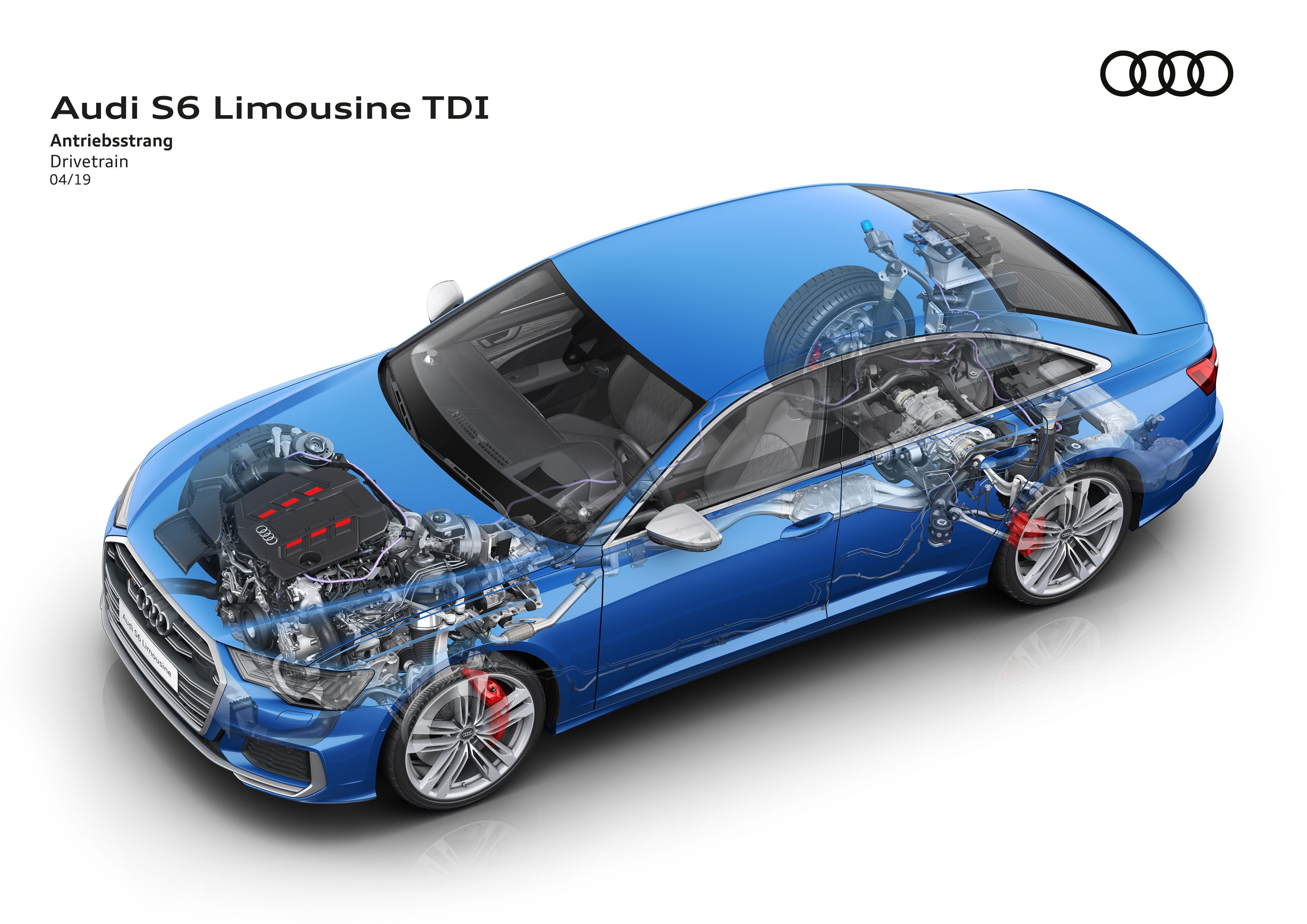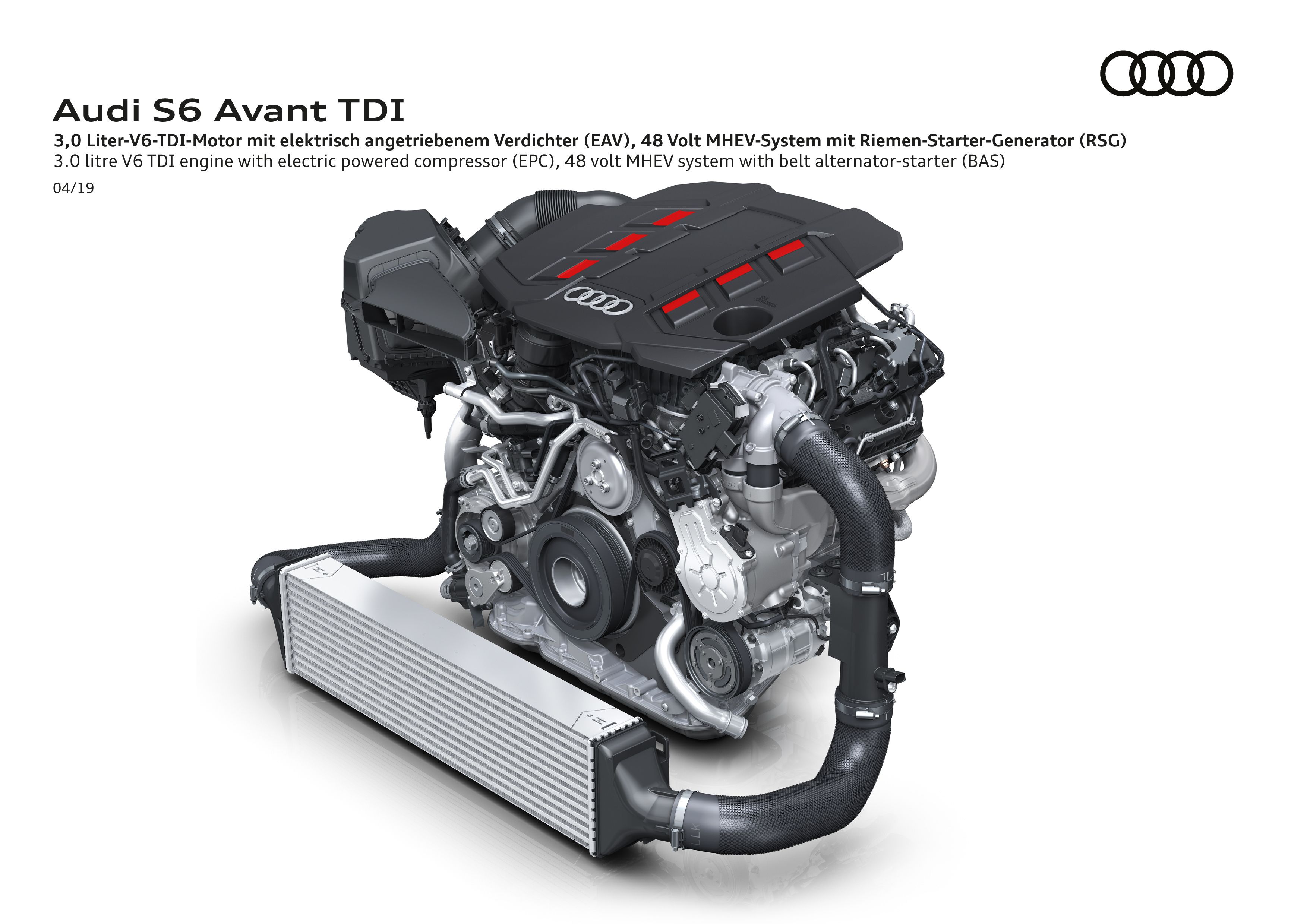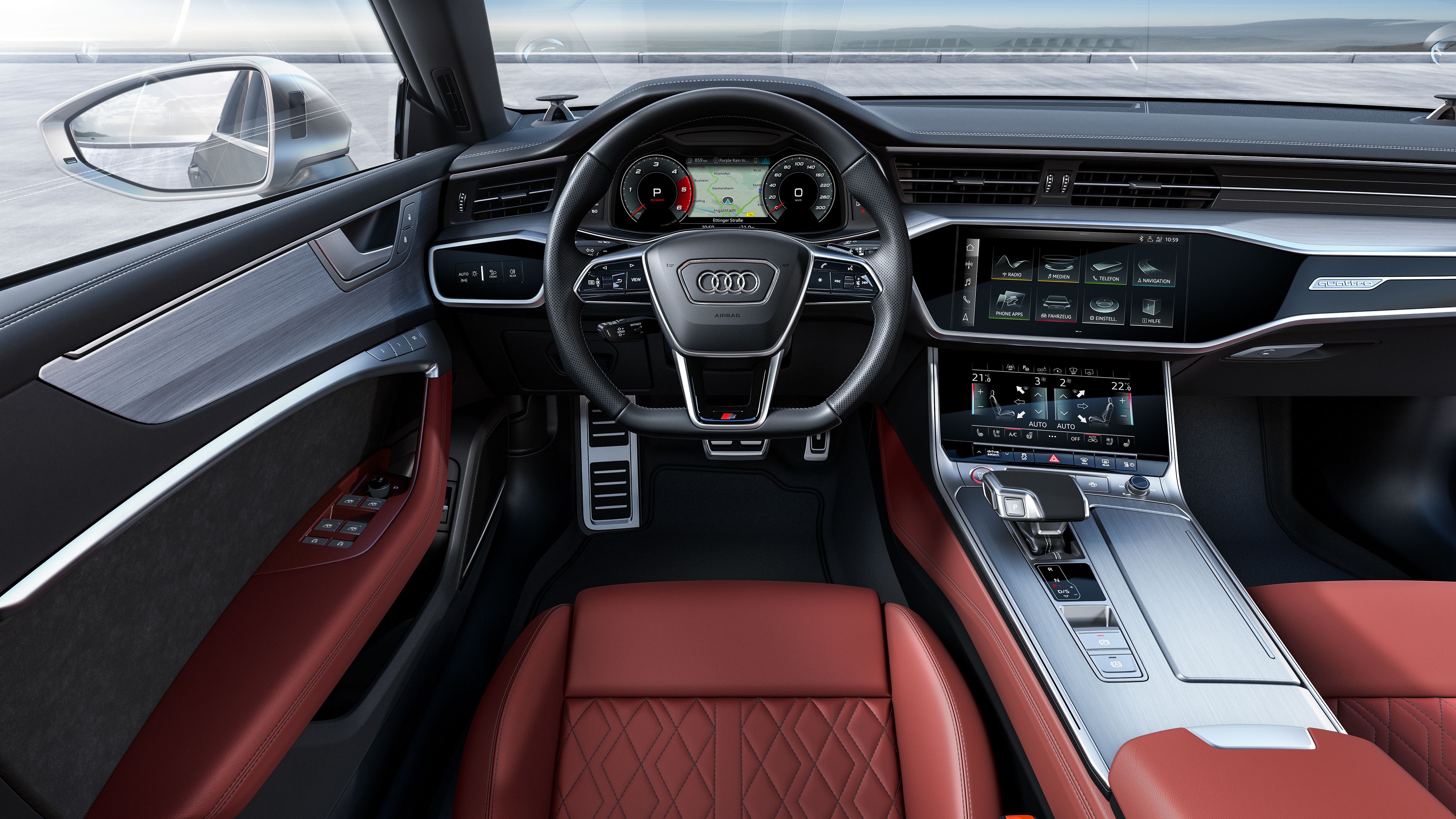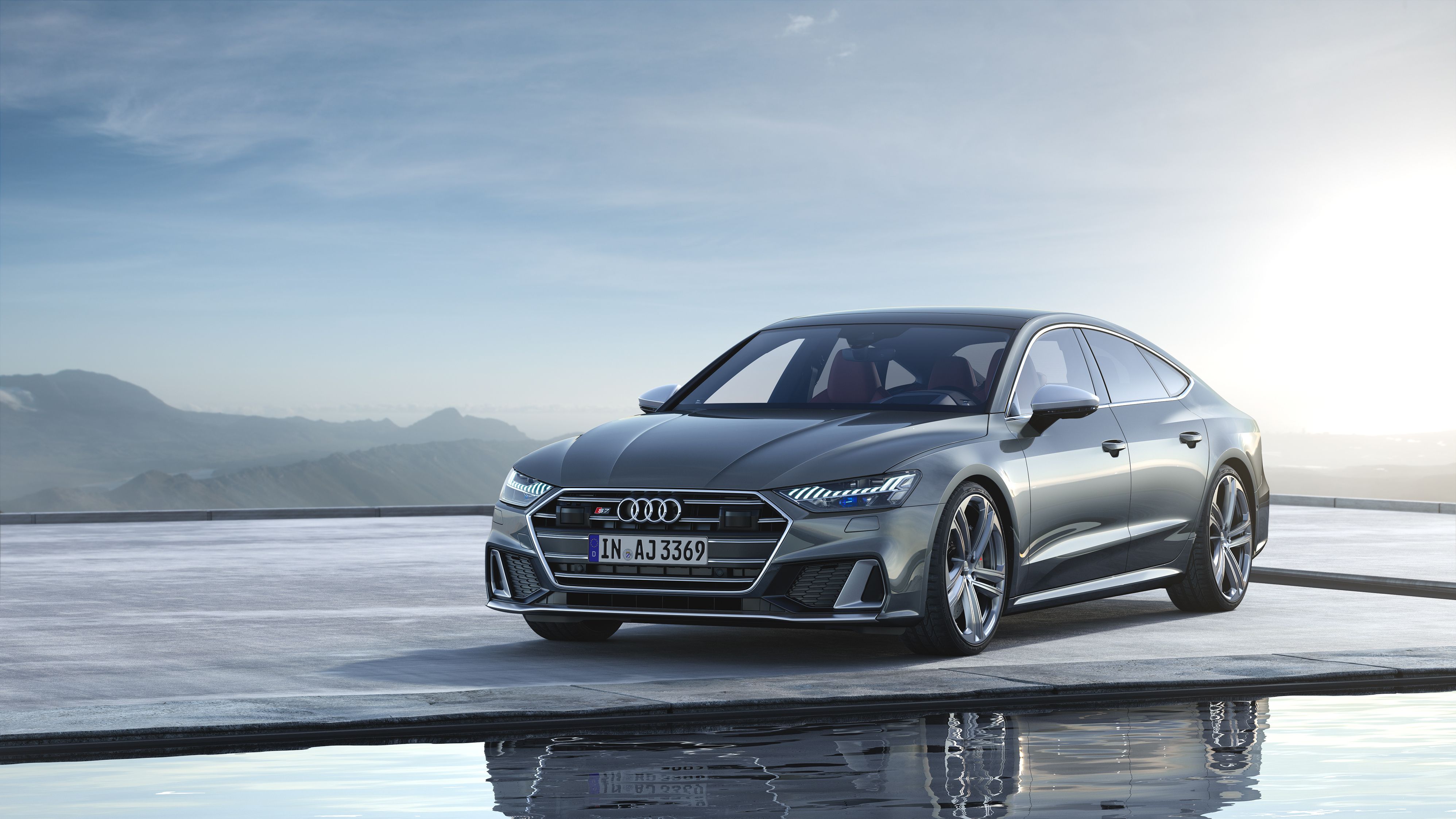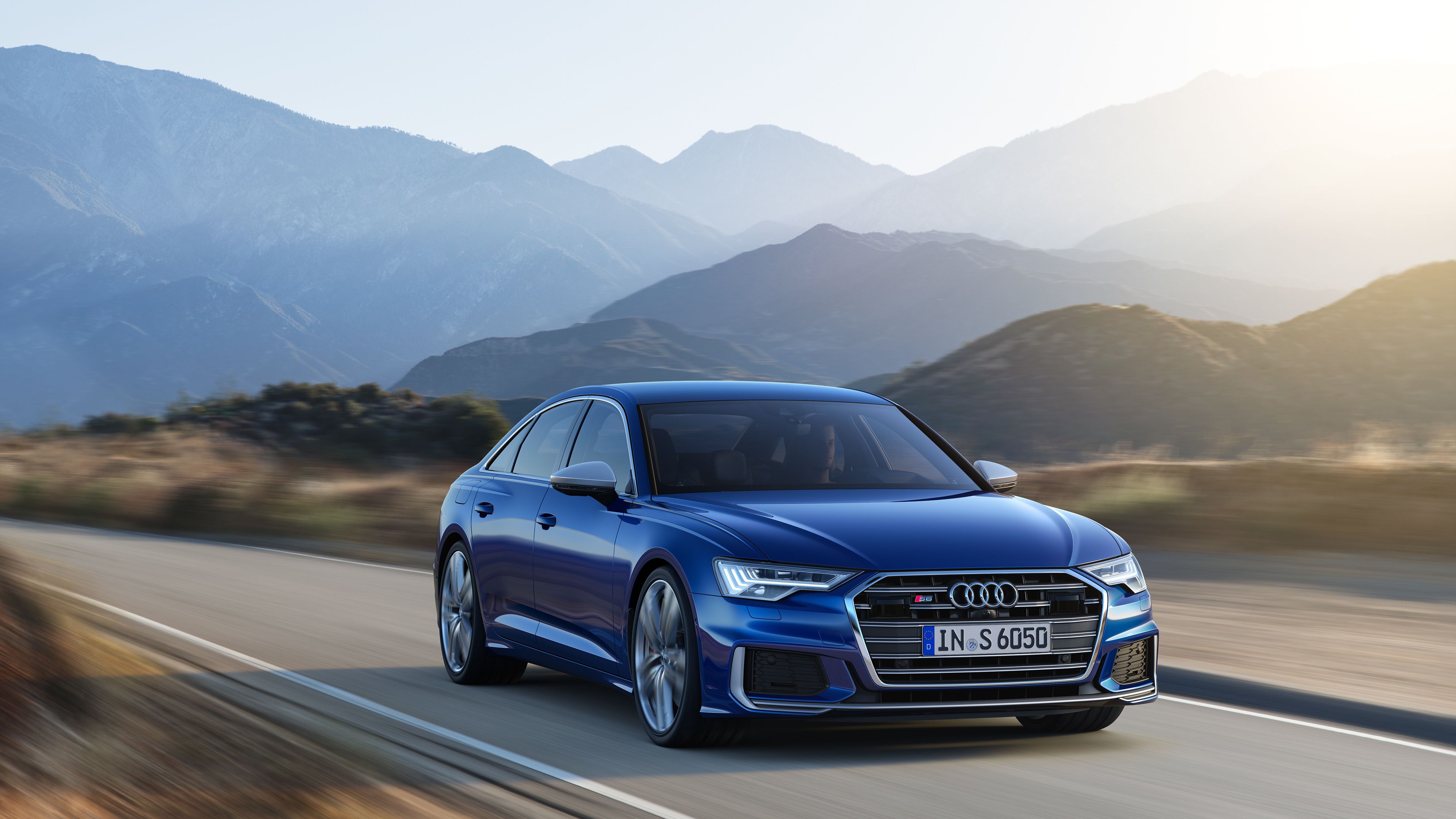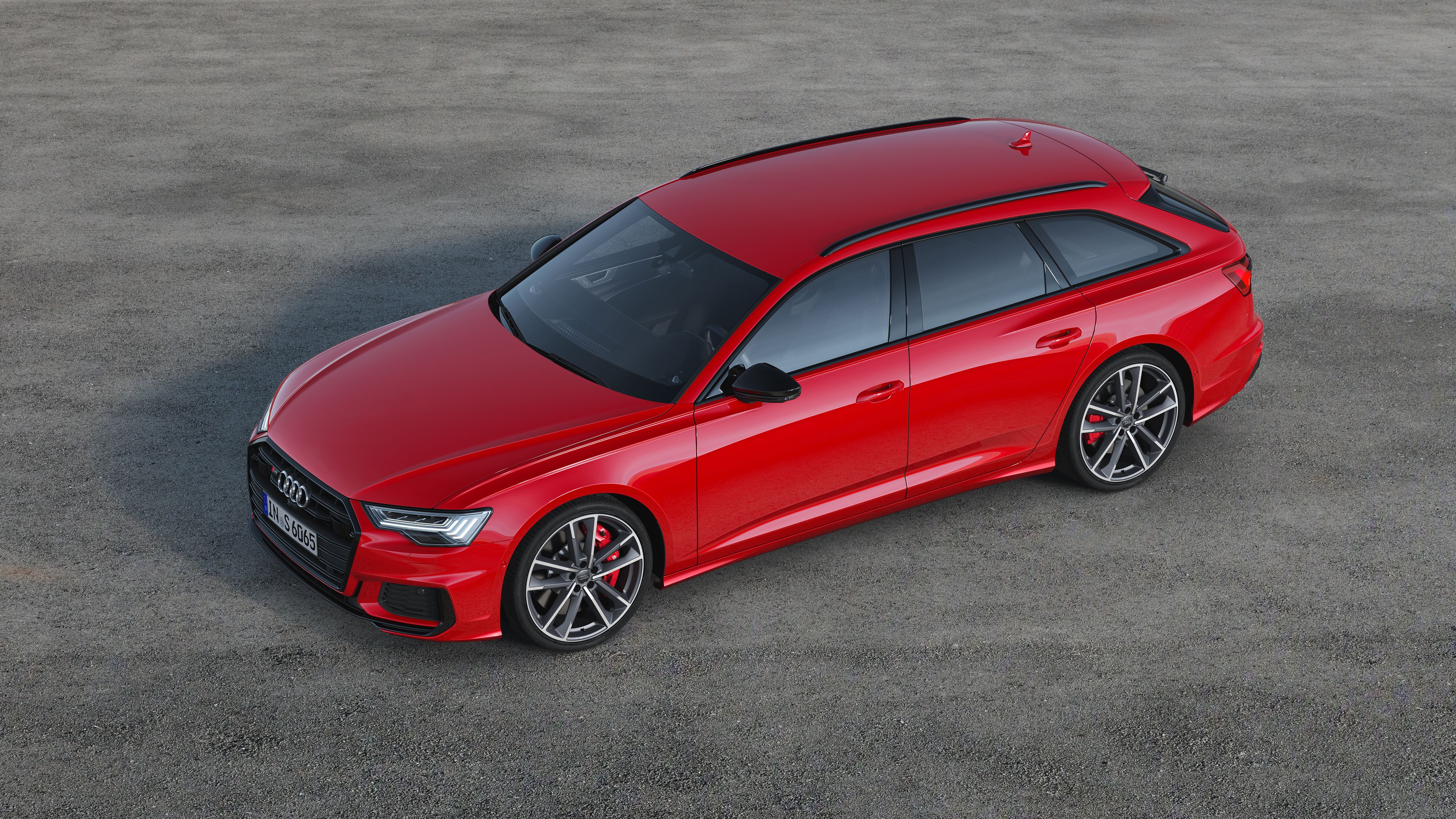Audi isn’t giving up on performance diesel engines just yet, at least not for Europe. Audi just revealed the all-new 2020 S6 (available as either a sedan or wagon) and S7, and they come with different power plants depending on where they’re sold. For Europe, Audi has elected to offer the S6 and S7 a V-6 TDI engine, while in North America, Asia, and other markets, these models will be sold exclusively with a gasoline-powered V-6 TFSI.
The 2020 Audi S6 and S7 Pack Some Serious Power With Smaller Engines
Previous incarnations of the Audi S6 and S7 were only sold with a gasoline-powered, 4.0-liter, TFSI, V-8, but for this generation, Audi has chosen the exact same tactic as it did for the SQ5 performance SUV. In other words, you won’t be able to order a gasoline-burning S6, S6 Avant or S7 on the Old Continent at all, so if you want one, it’s going to have to drink from the black pump.
|
Engine |
3.0-liter V-6 TDI |
|
Horsepower |
349 HP |
|
Torque |
516 LB-FT |
|
0 to 100 km/h |
5 seconds |
|
Top Speed |
155 mph |
|
Fuel consumption |
6.5 l/100km / 36.1 mpg |
And being a diesel, Audi claims none of the models will require more than 6.5 l/100km / 36.1 mpg U.S., so you get quite a bit of performance without much of a fuel efficiency penalty - this is the main advantage provided by a diesel performance car, a concept that’s nowhere near as foreign to Europeans as it is to Americans.
But even with this impressive performance and efficiency, there will still be people out there who would prefer the gasoline engine in Europe had it been available and, in its absence, these people will probably look to another manufacturer for solutions.
The same engine powers the 2019 Audi RS5 coupe and in that application it can propel the car from naught to 100 km/h or 62 mph in a very brisk 3.7 seconds. If you were to remove its electronic speed governor, it’d reach 300 km/h or 186 mph. In the heavier S6 and S7, though, the sprint time will be a bit slower, probably around the 4.5- second mark.
|
|
ids=834722,834723> |
Both models rely on an eight-speed automatic transmission and the Quattro all-wheel-drive system to send their engine’s power to the road. The Quattro system has an automatic locking center differential that usually splits the power 40:60, but in extreme cases, it can send up to 70 percent of all power to the front or as much as 80 percent to the back. The car will also use its brakes to scrub the inner wheel speed in order to improve the car’s cornering characteristics.
Bits that the S6, S6 Avant and S7 share include special, quicker steering racks, stiffer and lower suspension, and bigger brakes (15.7-inch front rotors and 13.8-inch rear rotors).
|
|
ids=834720,834721> |
We’ll have to wait and see how this diesel-only in Europe approach for the S6 and S7 works out for Audi as it might backfire and affect sales. Why didn’t the automaker offer both versions in Europe? We really don’t know because no justification is provided in the official press blurb announcing the model.
In Europe, you can order your S6 sedan from €76,500, the S6 Avant wagon from €79,000, and the more exclusive S7 fastback from €82,750. Pricing for the S6 and S7 outside of Europe has yet to be announced.
|
Audi S6 sedan |
€76,500 |
|
Audi S6 Avant |
€79,000 |
|
Audi S7 |
€82,750 |
Further reading
Read our full review on the 2020 Audi S7.
Read our full review on the 2020 Audi S6 sedan.
Read our full review on the 2020 Audi S6 Avant.

